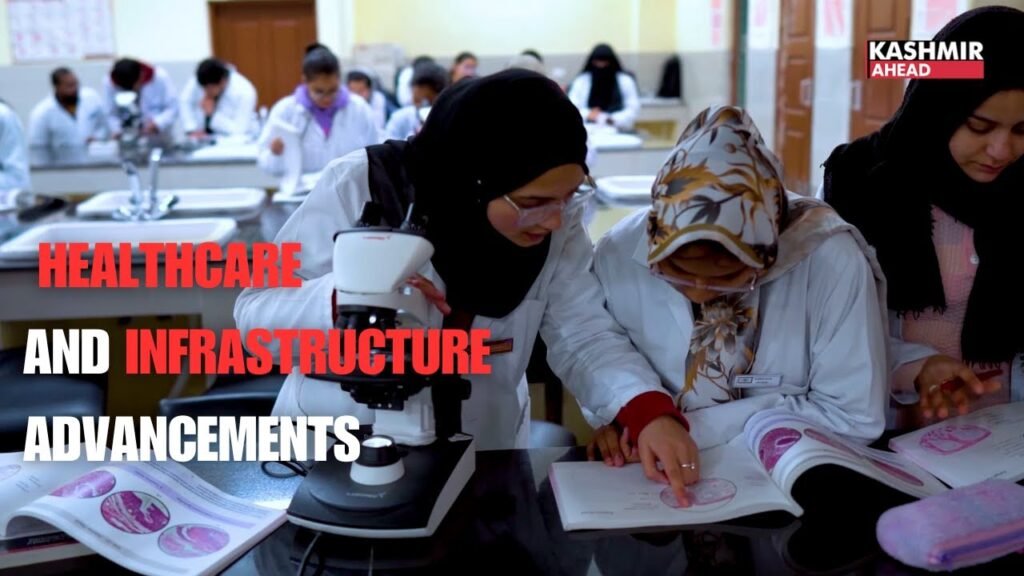In recent years, the state of Jammu and Kashmir has witnessed substantial development, particularly in health and infrastructure, owing to significant investments and focused governmental initiatives. Approximately Rs 35,000 crores have been allocated by the government to various states, fostering an environment of growth and improvement. One of the most remarkable areas of improvement in Kashmir is the healthcare sector. Post-militancy, the region has undergone a transformative journey, marked by enhanced medical facilities and increased accessibility to quality healthcare services. A primary health center in Kashmir, reportedly unparalleled in India, operates around the clock, providing universal health coverage to its residents. This achievement signifies a monumental leap in ensuring comprehensive medical care for all. The government’s investment of over Rs. 480 crores in healthcare infrastructure has led to the establishment of critical care blocks and the expansion of medical education. The number of MBBS seats has surged from a mere 5 to a projected 100, indicating a robust future pipeline of medical professionals. Additionally, the introduction of 52 paramedical institutes offering diverse technician and nursing courses has bolstered the region’s healthcare workforce. These initiatives ensure that the healthcare system is not only well-equipped but also adequately staffed to meet the growing demands. Furthermore, the establishment of new medical colleges across Jammu and Kashmir has been pivotal in addressing the human resource gap, particularly in remote areas. These institutions are expected to enhance doctor-patient skills and ensure that local youth, many of whom succeed in NEET, remain in the region to contribute to its healthcare sector. Kashmir’s infrastructure has also seen significant improvements, contributing to a better quality of life for its residents. The transformation is evident in the region’s improved road networks and the bustling activity around iconic sites like Dal Lake. Unlike the past, when travel was marred by constant security checks and fears, the current scenario depicts a thriving and secure environment, indicative of the region’s progress. The noticeable reduction in security concerns and the subsequent rise in tourism and local commerce are testaments to the successful implementation of government policies aimed at stabilizing and developing the region. This transformation is crucial for Kashmir, considering its strategic importance and the need to integrate it fully into the national framework. The developmental strides made in Kashmir serve as an exemplar for other states aiming to enhance their healthcare and infrastructure. The holistic approach, encompassing substantial financial investment, strategic planning, and emphasis on education and human resources, has proven effective in catalyzing positive change. As other states observe these developments, there are valuable lessons to be learned: meticulous planning and dedicated execution are vital for successful development; fostering local talent through education and training ensures a sustainable workforce; and ensuring accessible healthcare for all residents is fundamental for societal well-being. The recent developments in Kashmir, particularly in the health sector and infrastructure, reflect a significant transformation that can inspire similar progress
Transformative Development in Jammu and Kashmir: Healthcare and Infrastructure Advancements
Keep Reading
Add A Comment
Services
- About
- Contact
- Video
- Newsletters
- Sponsored News
Subscribe to Updates
Get the latest creative news from FooBar about art, design and business.
© 2025 Kashmirahead. Designed by Creative Milestone..



